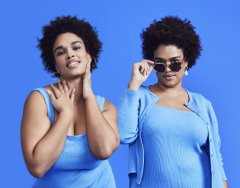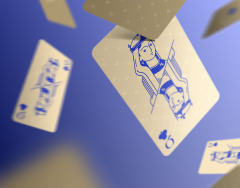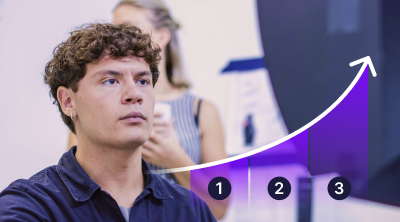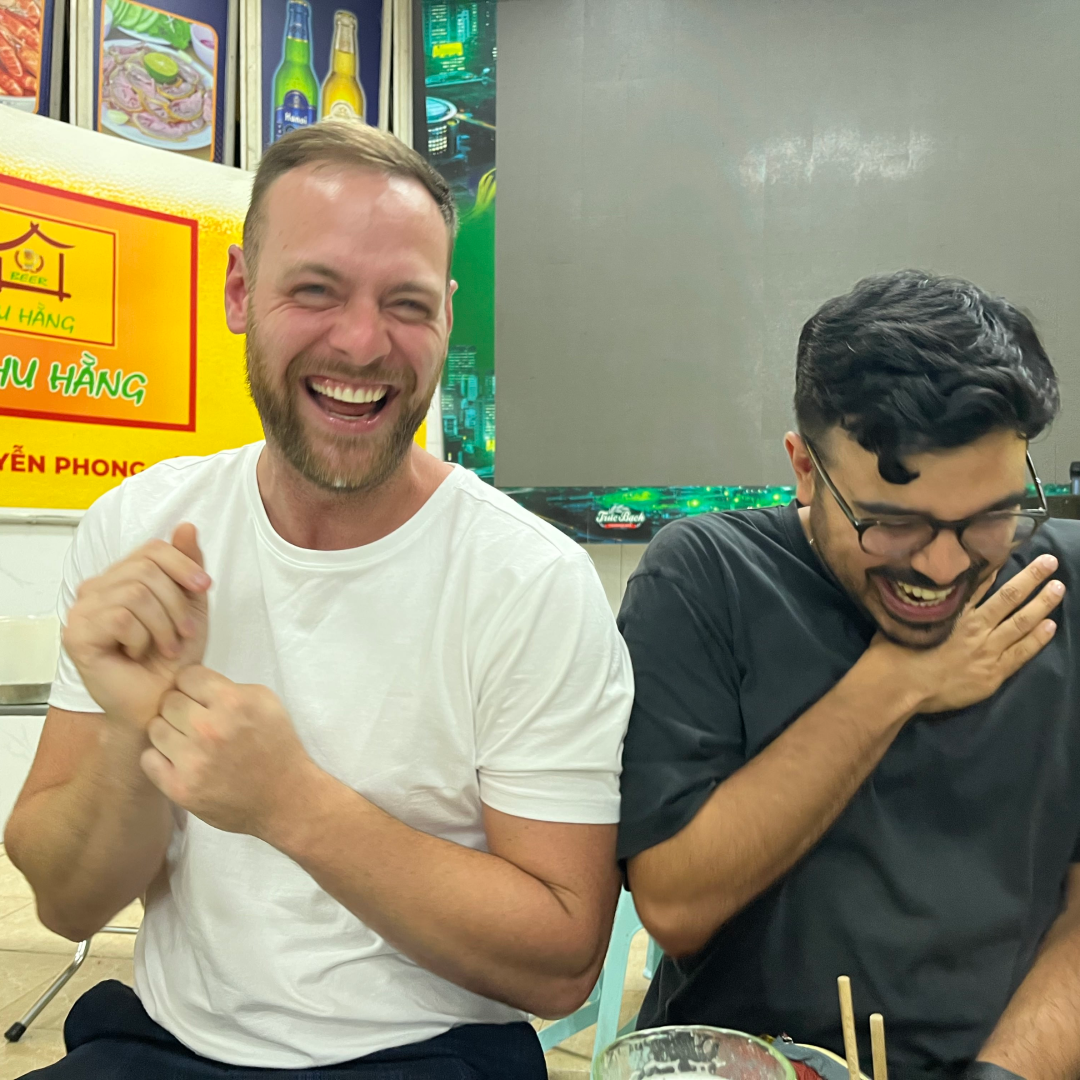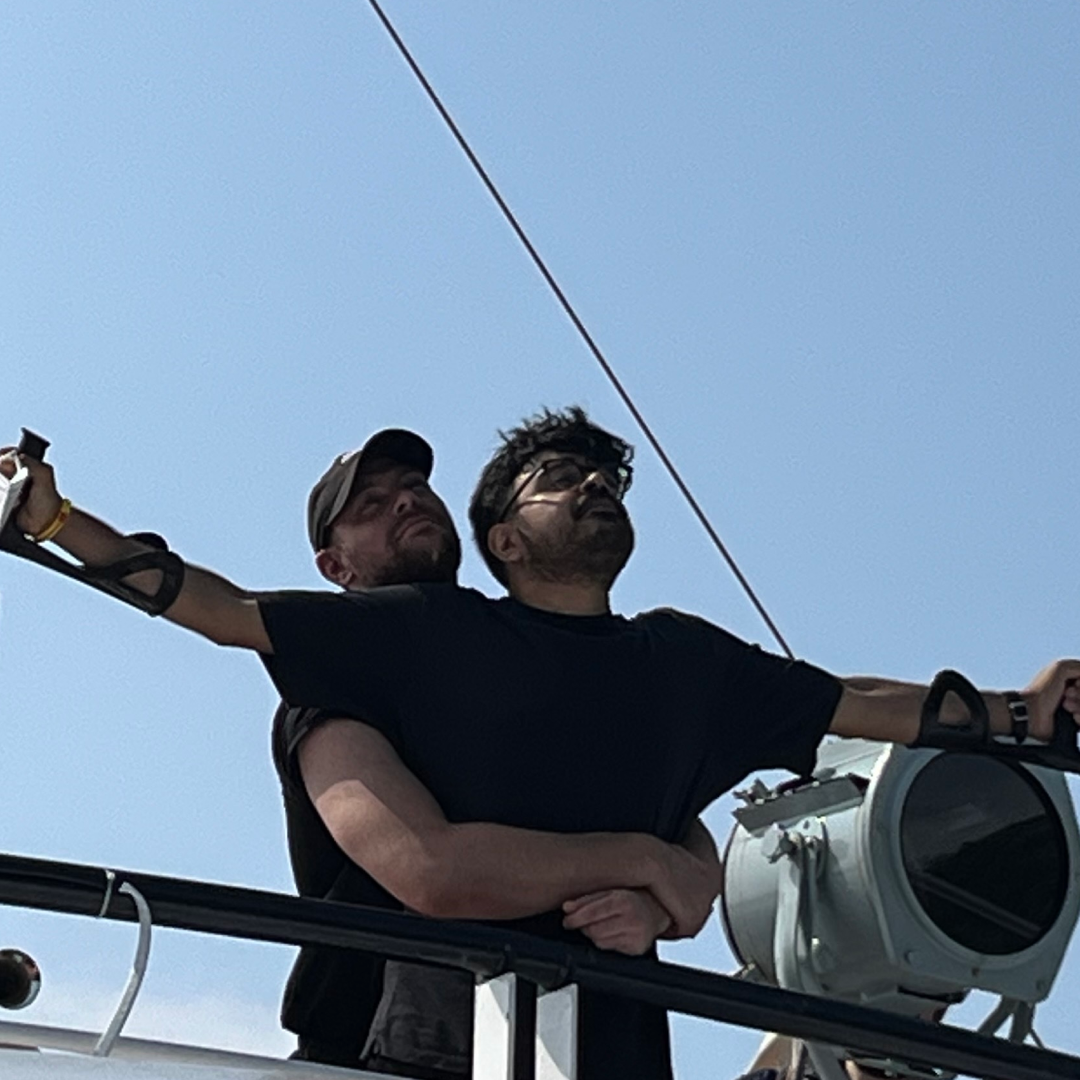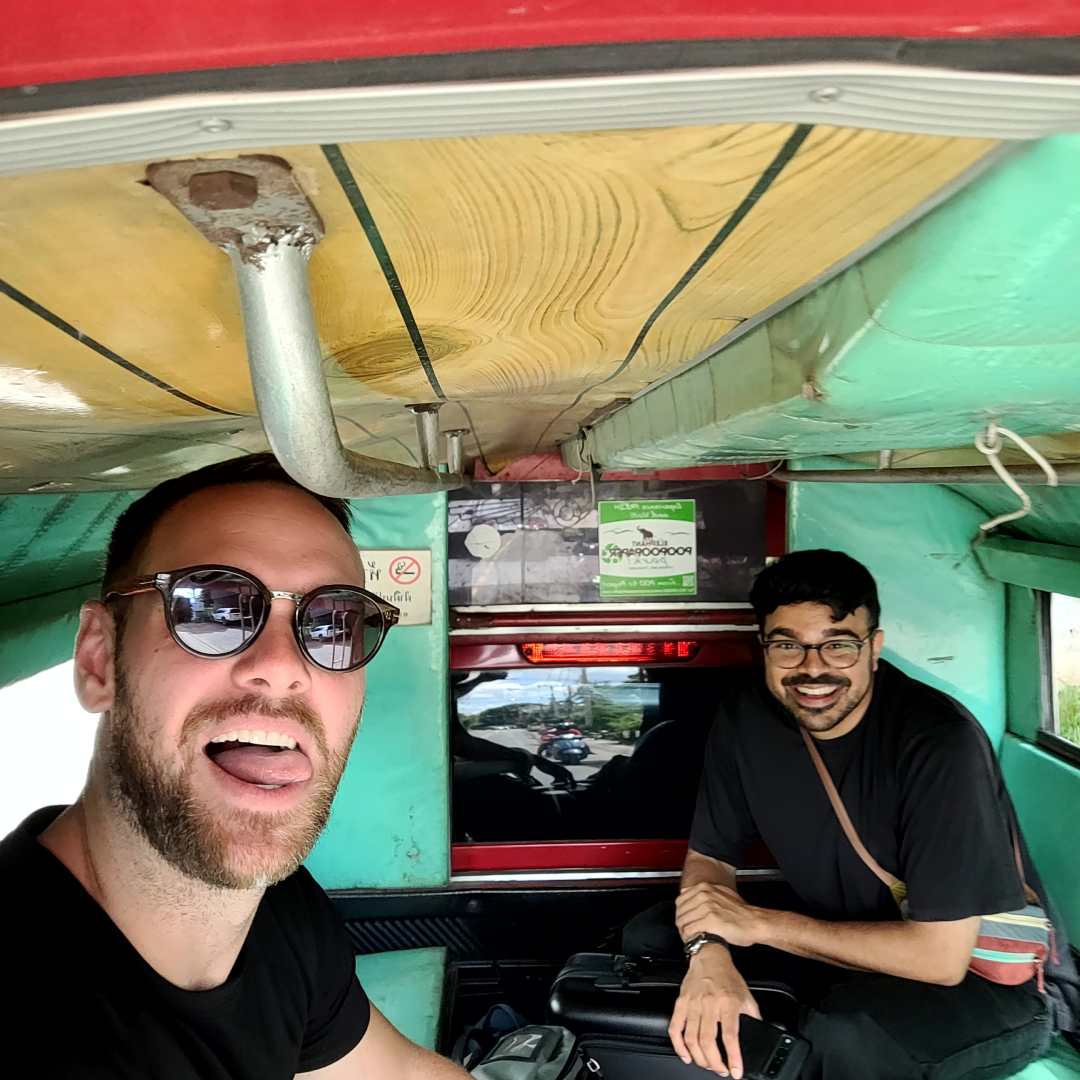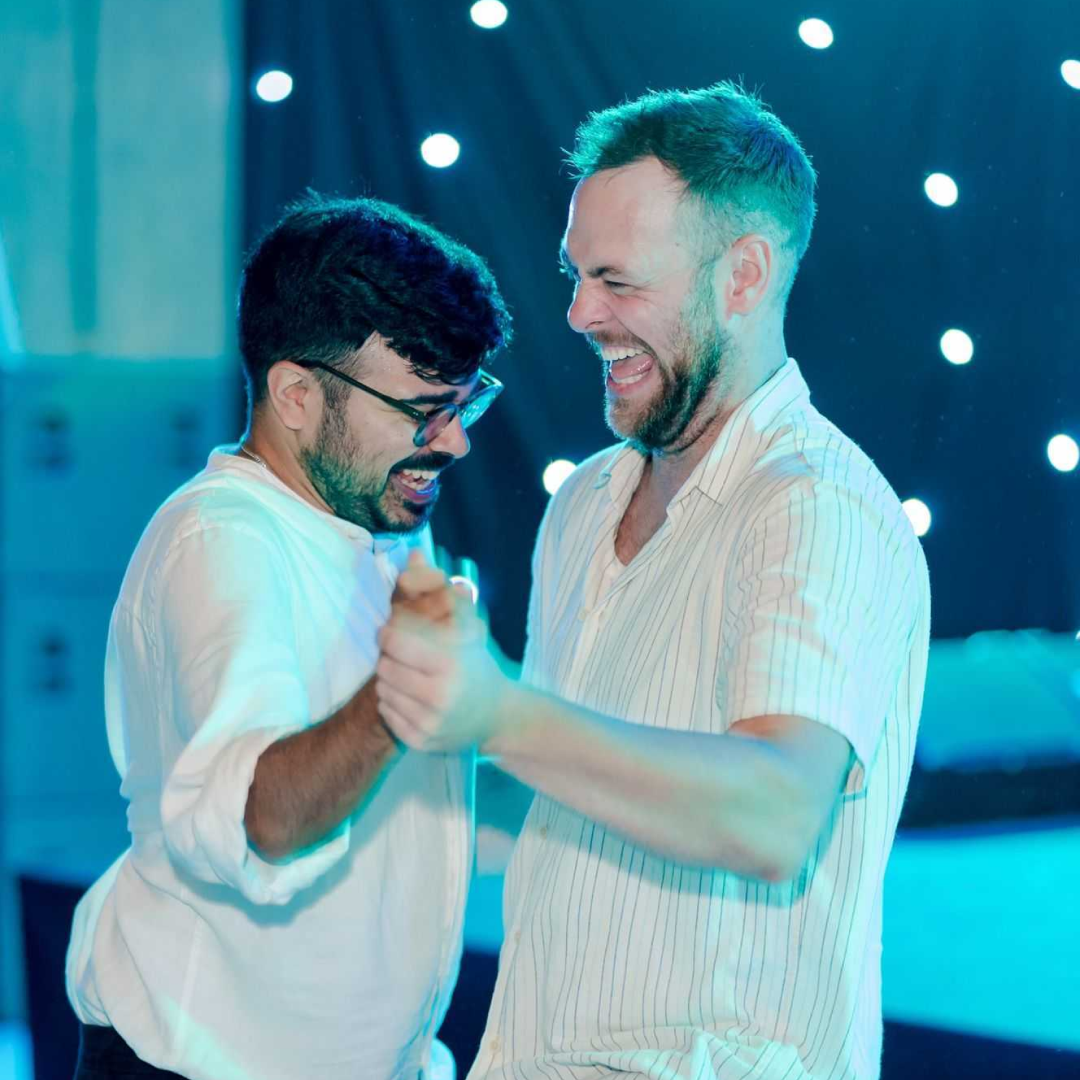
The Business Case for Colleague Friendships
We caught up with Ian and Aaron to explore the origins of their friendship and how connections like theirs, and others across the organization, help give Creative Force an often-overlooked competitive edge.
What’s the business case for fostering a work environment where colleagues form close, meaningful, and genuine friendships?
According to Ian Mitchell, Senior Director of Customer Experience and Aaron Horwath, Director of Learning and Development, almost none.
UNLESS you believe your organization could benefit from more efficient communication, more open and creative collaboration, improved overall performance, and a workplace culture that retains talent.
Aaron, How did your friendship form? What brought you two together?
We’re a Covid Couple, actually. I joined Creative Force in 2021 during the pandemic and moved to Berlin, where Ian and I shared a small office in a co-working space. Since it was during lockdowns and there wasn’t much else to do, we ended up hanging around the office because it was better than sitting at home alone in our apartments. Ian and I probably spent fifty hours a week together or more—which is a lot of time to spend with another person, and an especially long time to spend with either of us.
That year acted as a pressure cooker of sorts for our friendship; we were either going to drive each other insane or end up with a bond for life. We definitely did some of the former (Ian loves drinking iced coffee and then chewing on the leftover cubes like a lunatic, which drives me nuts. He also kept the office insanely hot all winter while exclusively wearing T-shirts, so I do think he needs to be examined by a certified professional). But we also shared some of the hardest laughs and best memories from what was otherwise a strange and often depressing year and have been besties ever since.
Ian, how does having close friendships with Aaron and with other colleagues change the work experience day-to-day?
In a scale-up like Creative Force, everyone gives so much of themselves to build the company and make it successful. As part of that process, you experience a lot as a group—successes, stresses, failures, doubts. Like any group that is trying to achieve something together, it creates a real sense of camaraderie that shapes every aspect of the work experience.
When we welcome new members to our team, you can often see their surprise at how we interact with one another. Our meetings are often a chaotic mix of inside jokes, memories from the past few years, poking fun at one another, and casually catching up on life—all the things you do with any group of close friends—before we cover work topics.
It’s also clear we’re not “just” colleagues when we get together in person. There’s genuine excitement about spending time together; some of my favorite memories from the last few years are the hours we’ve spent chatting with colleagues (and friends!) about life in hotel rooms, hotel lobbies, on flights, at dinner, and in bars late into the night.
That closeness makes a big difference on days when we’re not at our best—when we’re tired, jet-lagged, stressed, or going through personal issues. At other companies, those days can feel isolating because there’s pressure to put on a brave face. But because of how well we know and genuinely care about one another, it’s easy to spot when someone is going through it and we are quick to pull them aside to check in, let them vent, try to get a laugh out of them, or give them whatever support they might need.
All of that is to say, when you have a tight-knit group like ours, it makes everything we do feel so much more than “just a job,” and in addition to just being way more enjoyable, I think that is the type of environment where everyone does their best work.
Aaron, how do you see Creative Force benefiting from friendships like yours? Is there a business case to be made for cultivating close friendships between colleagues?
Efficiency in communication is a big one. Similar to siblings, you develop a shorthand with colleagues you’re close with. If I have an idea I want to pitch to Ian, for example, I don’t need to spend two days putting together a slide deck and rehearsing a pitch like I might at another company where my colleagues and I are less familiar. Ian and I can hop on a call, I can pitch the idea and, because we know each other so well, we can be honest and direct with one another and decide in five minutes if it’s worth pursuing. Then we move on to other topics like coffee grinders, Formula 1, and where we will have our next “Boy’s Night” dinner.
Also, if I put my People team hat on, fostering these close relationships is a powerful tool for talent retention. Leaving a company is one thing, but leaving a company when it means saying goodbye to your friends is something else entirely. Other companies can offer plenty of perks to try and lure talent away, but their offers will never include working with the group I sat with on a street corner at 1 a.m. in Hanoi, eating street food after a night out. Or the group who jammed to 2000s pop hits together in a tent in Middle-of-Nowhere, Denmark. Or the group I sipped wine with while touring Amsterdam’s canals.
The relationships people have with one another at Creative Force are a major reason people stay, and that’s certainly true for me.
Ian, you two travel together often, where are you headed next?
This past summer, we went to dinner together, as we often do. We went for Indian food and while eating, we wondered why we were eating Indian food in Amsterdam. Why not go to India and eat proper Indian food? By the end of the weekend, we had tickets to go to Delhi and Mumbai in February 2025. It was an incredible trip.
Next up is probably Kuala Lumpur or Hong Kong. We're suckers for great food destinations. Whichever one we pick, it will be easier on our stomachs than India was, that’s for sure.
